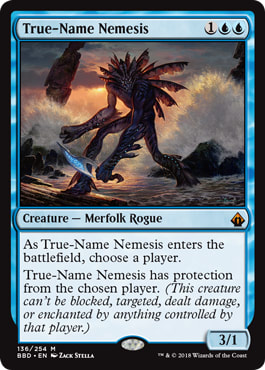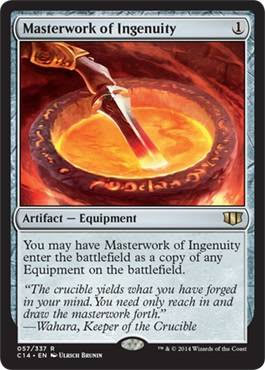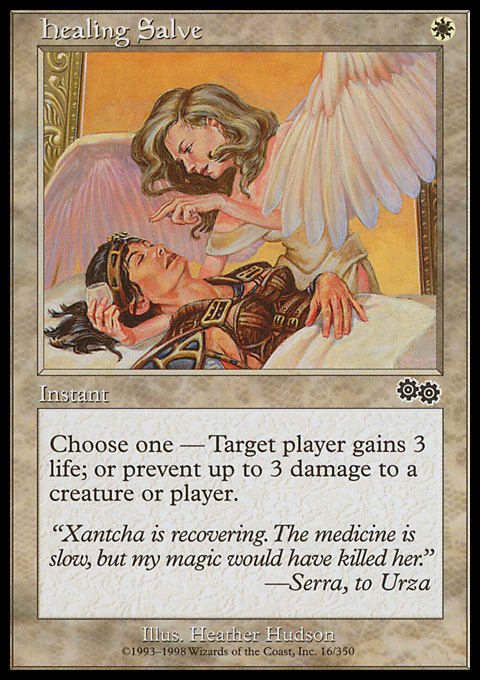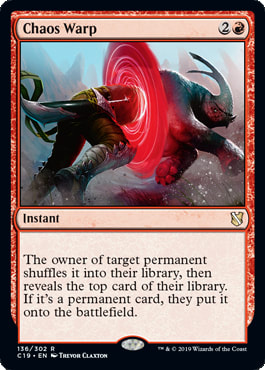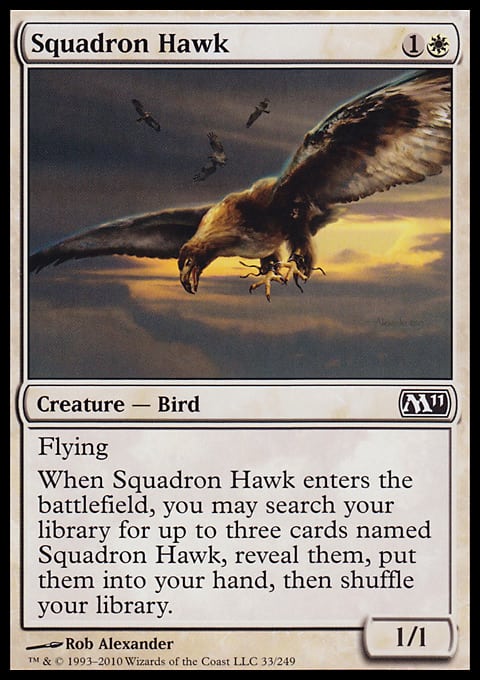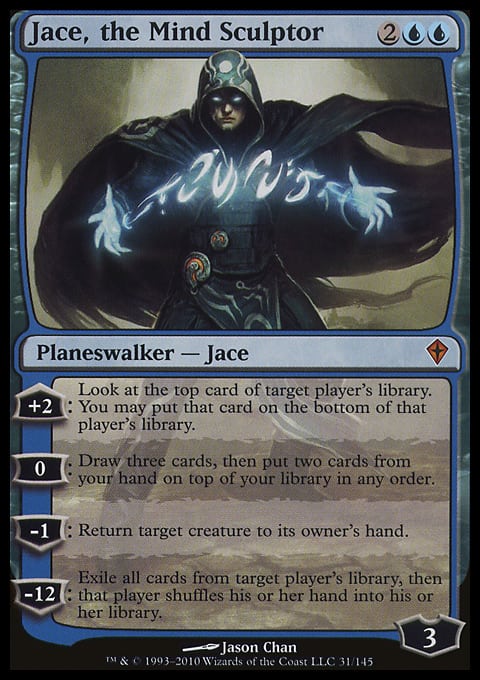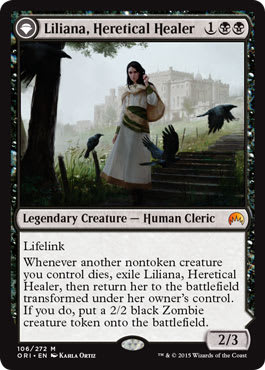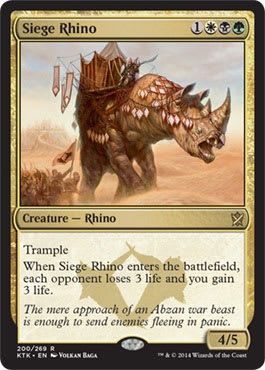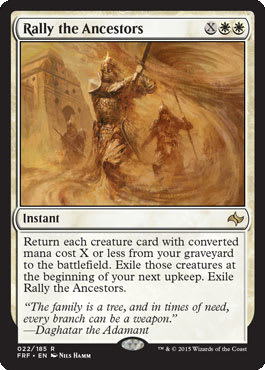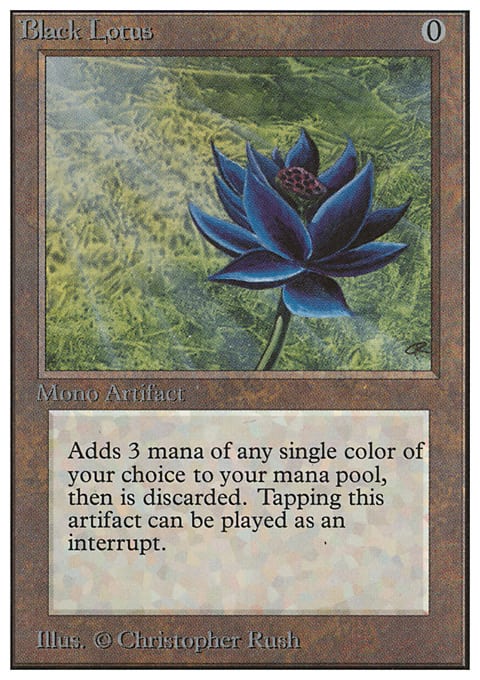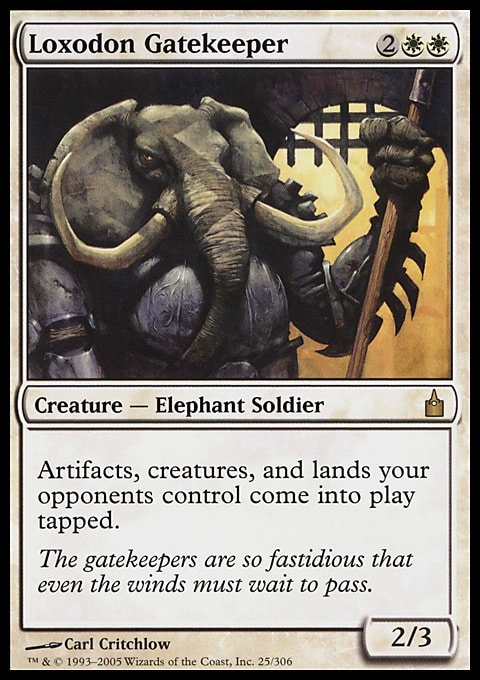Some friends recently asked me questions relating to my recent Magic theory work. Today I've decided to publicly answer them. I hope to have many additional conversations in the same vein, as working with theory without conjecture is some nasty bubble creep.
My friend "Sam" asks the following in relationship to my recent piece on the misconception of power creep:
I do not think we're seeing the beginnings (or middles or ends) of problematic power creep. I think we need to be careful when we talk about things being "pushed," as all that really means is that the card has qualities that demonstrate it is intended to be played in competitive Magic environments. That these cards are not warping Standard demonstrates that they are merely "pushed" in terms of a specific format role or niche. Modern Horizons is an example of an entire set release based around "safe" power creep, that is, regulating its potential contexts ahead of time so that problematic power creep doesn't infect problematic contexts. This was an overdue development, and I am thankful it's finally coming to fruition. (It amazes me that Commander got so many supplemental releases before tournament Magic formats that are much less malleable and forgiving.)
Additionally, the recurring appearance of cards that are able to affect formats that are difficult to affect is a sign of design and development brilliance. It benefits first parties (Hasbro, Wizards of the Coast), games retailers (Cool Stuff Inc, Card Titan), and players (all of us!) that new products are able to engage with contexts we're already invested in. Even in the case of Hogaak - which I presume most players would view as a failure, mistake, pushed too hard, etc. - is ultimately a net positive since it affected a hugely popular format (Modern) with a new product (Modern Horizons) without being so integral to the format that they were unwilling to ban it after a sufficient amount of time warping the format.
Regulation (via bans, etc.) isn't ideal, but reality dictates it's as ideal as we get. Embrace it as a good thing. Protection from power creep. Mmm.
Power creep isn't dangerous as long as Magic has different contexts for both its cards and card pools in which to play different kinds of games and the ability to remove problematic cards that authentically do warp formats. As long as those systems are in place it is very difficult for power creep to alter Magic in any kind of practical way.
I will note that I use the term "warp" very infrequently when it comes to describing formats. I would assume it's a term born of Fatalism Intuition, but being that I'm fairly ignorant of the data of Legacy at the moment, I'm unwilling to pin the tail on that donkey confidently. But for what it's worth, it is much more fortunate for all of us if new cards are capable of either warping a format healthily or warping a format unhealthily - before a timely ban - than it is for cards to be incapable of penetrating powerful formats at all.
As a side note, is it not interesting to think of a Modern format where Hogaak (or Faithless Looting or Hypergenesis or...) were restricted? #NotJustVintage.
Next question up!
The inimitable Zac Hill has mentioned to me a few times that the implications of bubble creep have a lot more reach than just Magic, so some of that may bleed into here. Sorry if I lose anyone on the trail.
Ultimately, bubble creep is, at its core, the implication that change requires adaptability, which requires challenge. Without challenge, there's no problem-solving; there is only comfort and insularity.
Let us imagine a Magic tournament with a very solved format. Let's say Caw-Blade is the only viable archetype for anyone sincerely hoping to win the tournament. Because of natural variation or however you want to explain it, let's say decklists are optimized in some objectively set-in-stone way to 71 cards. The entire room has four cards to work with, but the other 71 are sacred and objectively correct (assuming, again, your goal is to win - I have personally played alongside people who sabotage their own tournaments because of sex, and it's really, really hard for me to call that outright wrong).
So the tournament takes place. There's a Top 8, someone wins, whatever. The usual.
The format we're describing has a direct connection between its level of "solvedness" (high insularity, little adaptation opportunity, very low creative opportunity) and its poor demonstration of Magic as a whole. In fact, you could probably get more creativity (and less insularity) by turning the event into an Uno or Bridge tournament. Is the winner any good at Magic? I mean, probably, but it's kind of hard to say.
The same is true of other Magic (and non-Magic) endeavors: Bubble creep can be mitigated only by embracing new perspectives, however uncomfortable or strange they may seem intuitively. In short:
Open Minds = Open Systems = Adaptability = Creativity/Proliferation
Closed Minds = Closed Systems = Insularity = Stagnance/Death
The second line of equivalencies above represents bubble creep. Keep your mind as open as your mana when it is an opponent's turn. Always, always, always.
Necessity Rule - The tendency for lasting Magic emergences to be solutions to a specific problem. This is where the rubber meets the road in terms of new Magic phenomenon: a new thing must solve a problem to guarantee its long-term survival. As long as Commander (or Modern or Standard) are solving a specific problem that other formats cannot, they will thrive.
Consider two formats that (as far as I know) have mostly come and gone: Tiny Leaders and Frontier.
Tiny Leaders was a format that mixed Commander and Legacy. The issue regarding its staying power is that it did a poor job of highlighting either's strengths and little to compensate for each's weaknesses.
Frontier was conceived as a way to play a kind of "last Standard" when the Standard formats of 2017 were solved far too quickly, reducing interest in the format at large.
Both of these are problems that there is no longer demand for, or, if there is some demand, another solution may be serving them better.
Commander solves the following problems: no agreed upon common, public "home" for collections of beloved and valued cards in tournament formats; minimized community within tournament Magic where the context is designed to be strictly zero sum; and of course, expression and customization for a game that has the tools to contain more of each than tournament Magic currently provides.
We need Commander. Or Magic isn't really Magic anymore.
I would venture to guess that the somewhat off-the-cuff variant formats that Arena provides will someday provide a lot of good data (to WotC, if no one else) demonstrating that players want a specific type of experience that isn't being catered to currently.
The most interesting "organic" example right now might be Old School Magic, which I empathize with - my Old School Cube, unsleeved, is still glorious. But I think Old School Magic is mostly based on arbitrary nostalgia, which though mostly benign here, is also a pretty subjective thing. I don't like to label everything unsubstantial as an intuition of some kind, but yeah, it's probably another one of them.
Next question!
"Are we in the middle of a 'changing of the guard' moment? Do you think one of the things holding the community/game back are the marquee players unwilling to let the next gen come in and take things in a new direction? Maybe this next gen is too interested in imitating the previous generation because it's all the Magic community really knows?"
I'll tread carefully. I'm not really interested in publishing too much of my industry expertise; I'd rather give it to someone that appreciates it and values it directly - I'd rather use it to privately change than publicly explain.
You're talking bubble creep. Big time.
That said:
I don't even know what the current "guard" is anymore. I'm a practice-what-I preacher when I can be - for better or worse - so I'm very outside the Magic bubble relative to where I've been over the last several years. And by that, I don't mean that I'm not involved directly in Magic - quite the contrary! - what I mean is that I have no earthly idea who is in what Hall of Fame, what constitutes "professional" Magic, who got caught cheating and how last year, or why I should care about any of that when there is plenty of other Magic healthily occurring everywhere, wherein I have a consistently positive experience by playing games, contributing to culture, and by working with the game as my day-to-day job. To get too caught up in the parochial stuff that's been around and insulated to the point of suffocation is a bubble creep-flavored mistake in 2019. In fact, many of the self-same members of such a tribe of "old guards" have themselves moved on (avoiding bubble creep in their own lives and lessening the bubble creep of Magic to boot!).
The best thing anyone can do is to embrace the creative when you find it and to enjoy it. The Internet has given Magic so much opportunity for authentic and exciting creativity and exploration; I encourage everyone to find value in Magic experiences that are not based on shitty data, the drift of whatever perception of the communal eyeball story-of-the-week, view counts, subscription counts, and whatever else bubble creep is telling you to buy into as a method of validity.
There is a game called Magic. Simply play it. Simply talk about it. Create with it.
Be excited to do so.
My dear friend "Dennis" had this to ask:
Deeply helpful theory articles. I'm not biased AT ALL in this manner.
Lastly, a pal across The Pond, James, wanted some discussion on this:
Now that is some good bubble creep being spotted out in the Magic wild. Too much for me to tangle with here.
But as another few days of time fade away, my next article will address exactly this question of content authority!
Until we share again,
(~_^)
The Indestructible Danny West
















